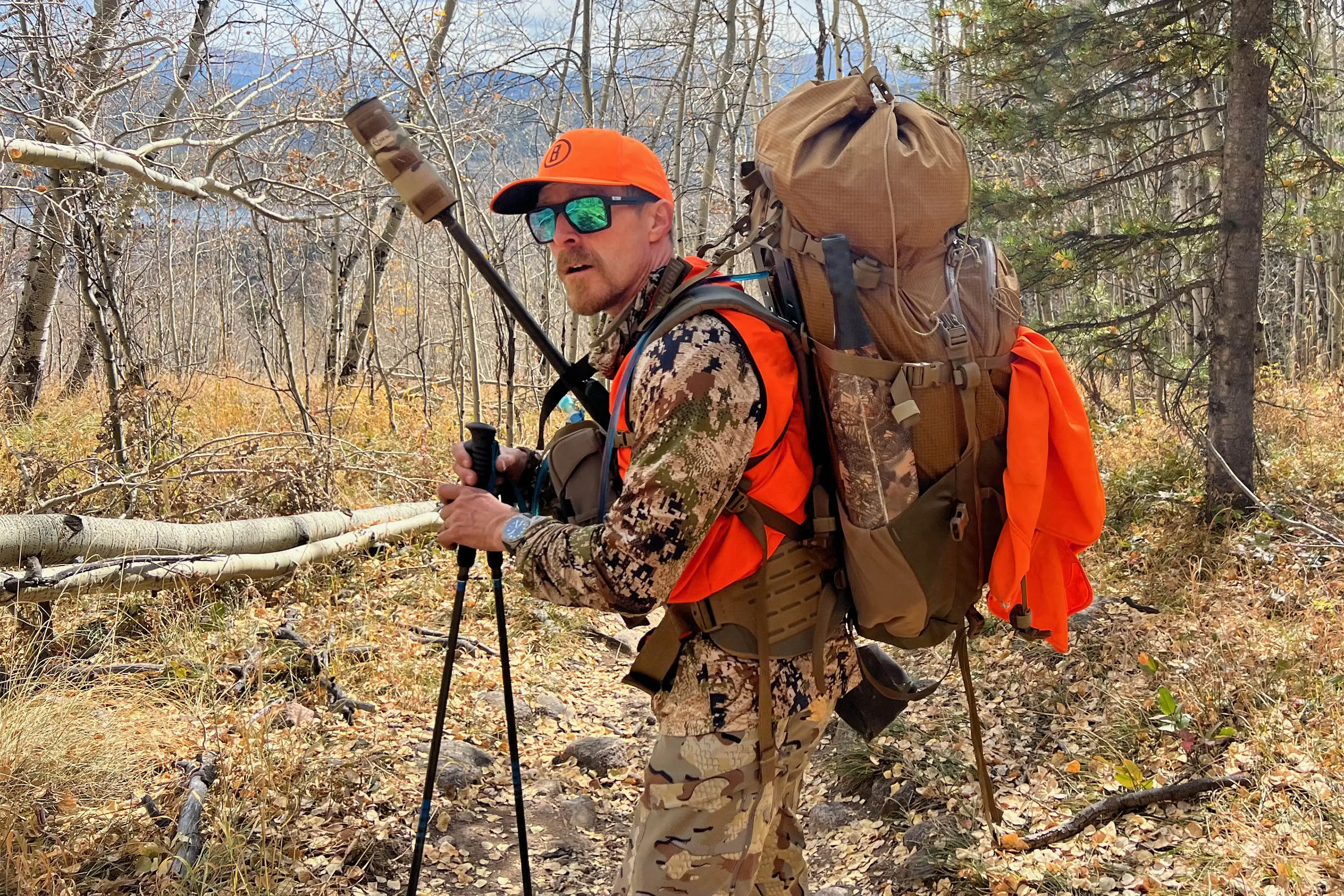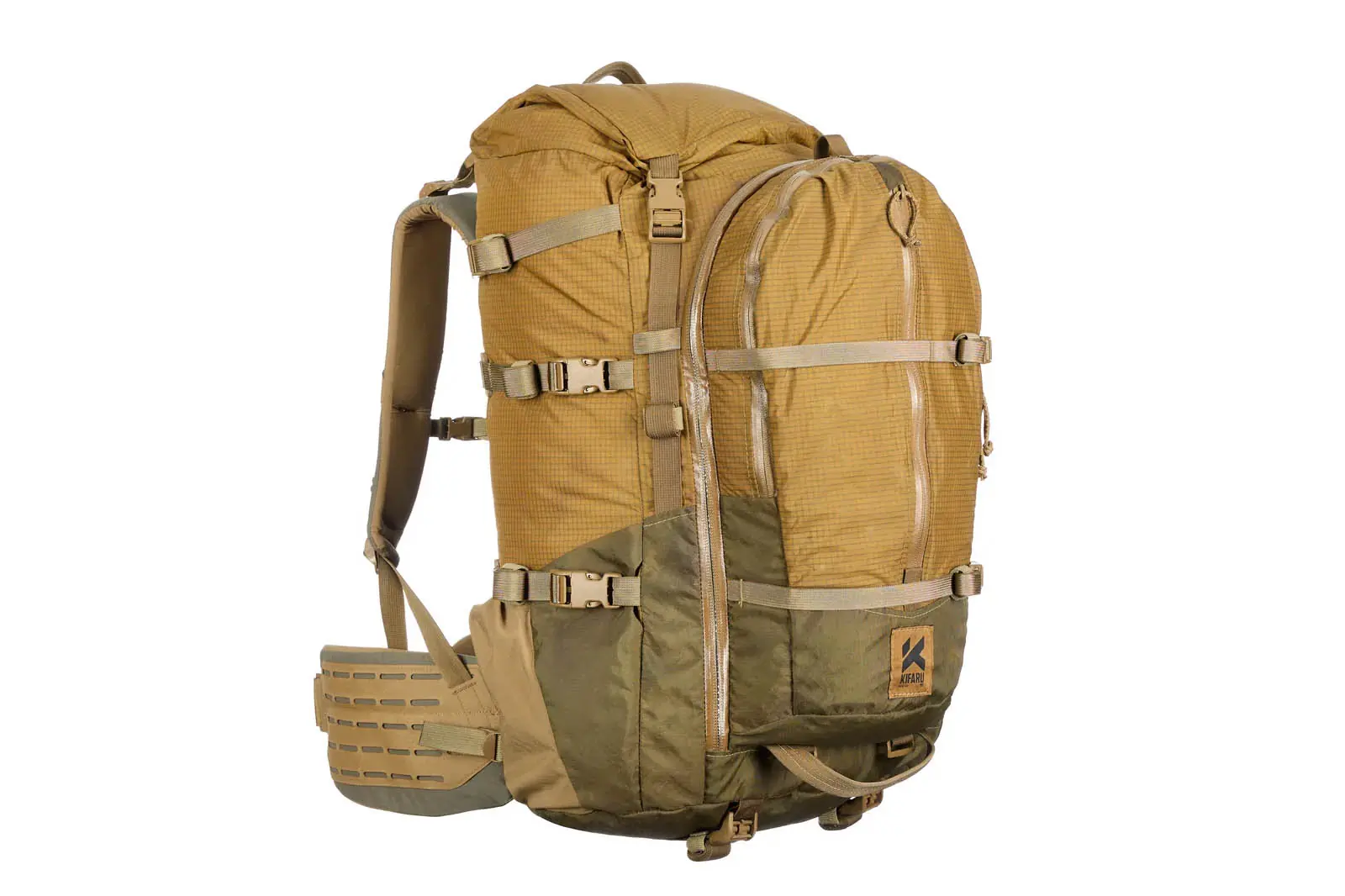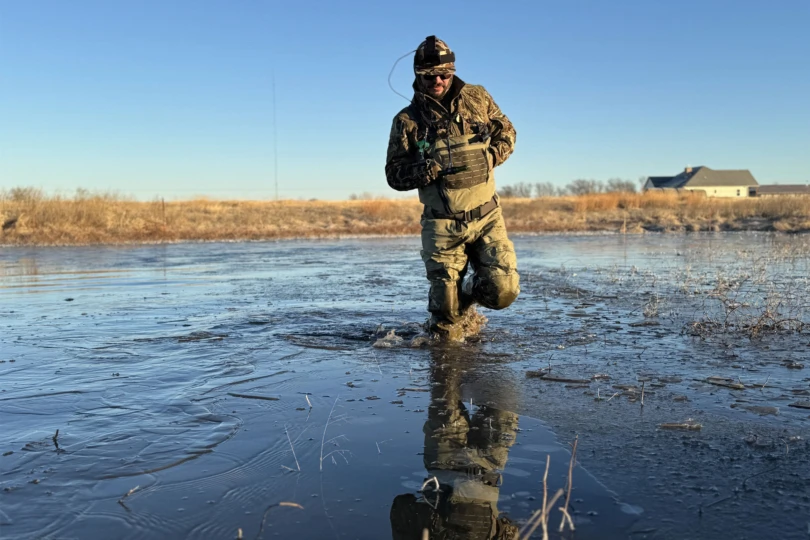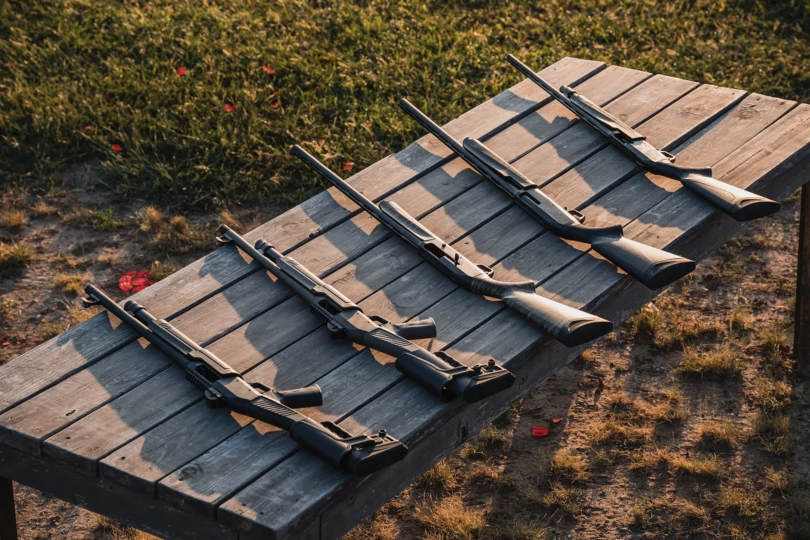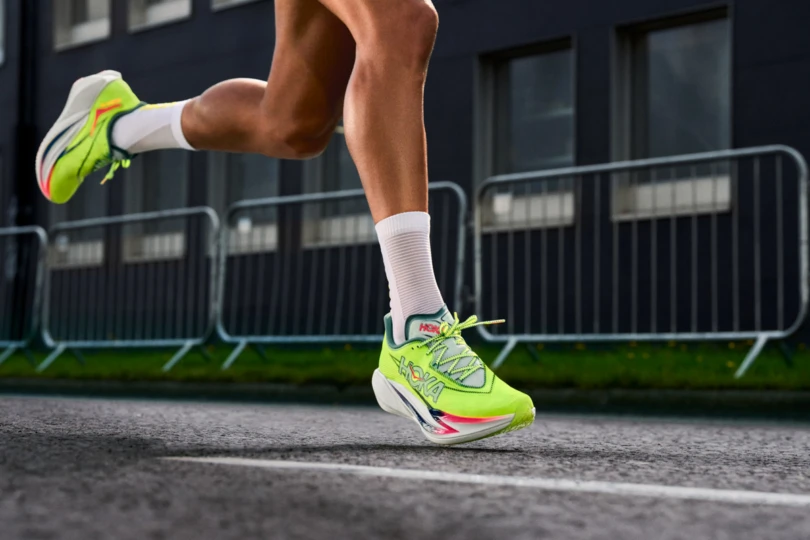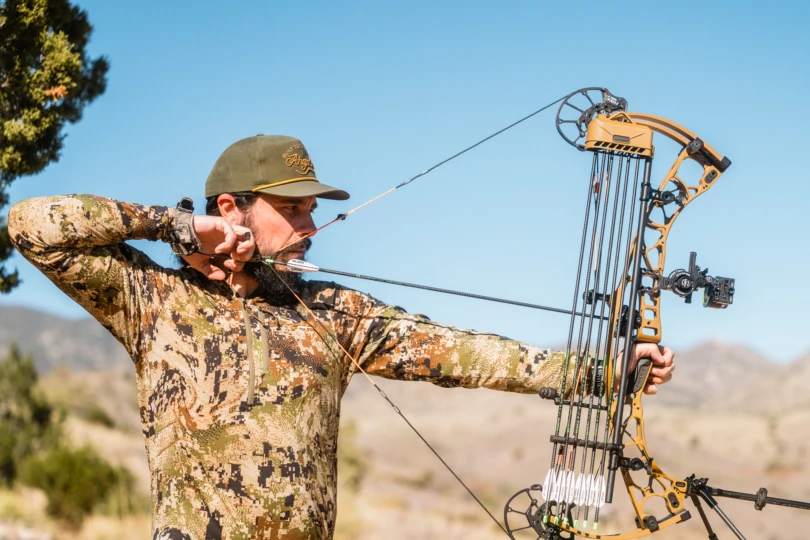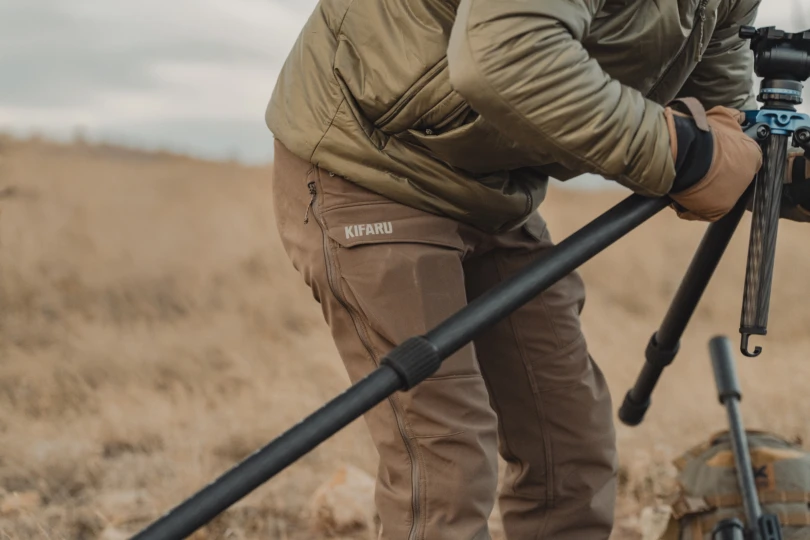Our camp on night one was about 4 miles and 2,000 vertical feet from the trailhead. Nothing epic, but at 12,000 feet, nothing to trifle with, either. Add about 50 pounds of gear, including a rifle, and it was a stout hike. That was day one of my 2024 Colorado elk rifle season and the first day of testing of the Kifaru Absaroka.
After 5 days of difficult hunting and a lot of miles covered, I came to appreciate the Absaroka’s versatility as much as its 6,580-cubic-inch (108L) capacity. This pack is big. But it’s still great for single-day hunts after camp is set. It compresses to a modest size to carry a kill kit, food, and water.
While this is still an early review, I’m impressed. The Kifaru Absaroka, combined with the Kifaru ARK Frame, is one of the better backpack systems I’ve used in many years of hunting and hiking.
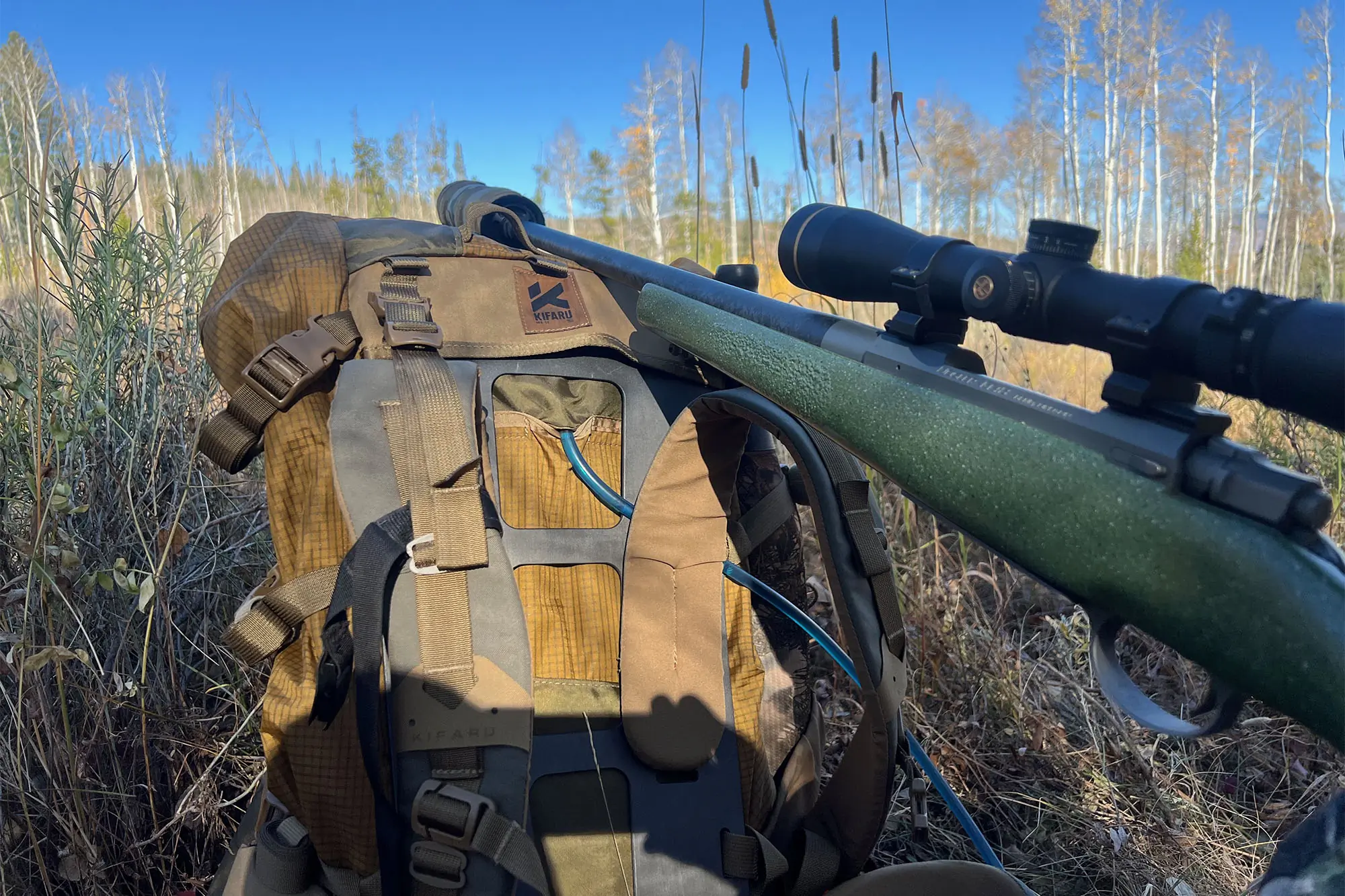
In short: The Kifaru Absaroka is an external frame pack based on the ARK Frame system. It can carry a huge load of 6,580 cubic inches inside a highly water-resistant, USA-made bag with one large compartment and two smaller pockets. In my testing, I found the frame, hip belt, and shoulder straps reliably comfortable and capable of loads of well over 50 pounds.
The pack is durable and well-designed for simple organization with larger pockets and a huge main compartment. While expensive, it will be worth the investment for those who haul a lot of gear and potentially meat.
Shopping around? Check out our guide to the best backpacks for hunting here.
- Weight: 5.99-6.25 lbs.
- Volume: 6,580 cu. in. plus meat shelf
- Material: Carbon fiber, Ultragrid and EPX 400 fabric
Pros
- Large but compressible
- Simple three-compartment organization
- Compatible with exceptional ARK frame
- Very water resistant, durable
Cons
- Frame (not included) does not have water tube attachment
- Affordable bag requires expensive frame
Kifaru Absaroka Review: An Expedition-Worthy External Frame Pack
While Kifaru has been on my radar for a while, thanks to its exceptional Gun Bearer rifle carry system, this was my first experience with the brand’s packs. Sewn right here in Colorado and Wyoming, I was stoked to put the pack through its paces.
Upon receiving the pack, I got to work opening all the straps and expanding the compartments to see what I was working with. The pack is relatively simple, with a huge, top-accessible main compartment.
This compartment also has access through a large U zipper on the front. On top of that panel are two other good-sized pockets, one about 10 L in size and the other about 5 L.
Once at camp, these two pockets will be essential for organizing your daily hunting gear. I’ll discuss them later.
This entire pack is made from highly water-resistant Challenger Outdoor EKOPAK EPX400 fabric. The fabric feels tough and has a nice tight weave. It is also 100% recycled, has no fluorocarbons, and is backed by a 70-denier ripstop grid.
The pack — sold independently of the frame — costs $277. It mounts on the Kifaru ARK Frame, which itself costs $500. I’ll dig deeper into the frame below.
Kifaru Absaroka Pack: 3-Compartment Simplicity
Overall, I like the fact that the Absaroka is a large, simple pack. I tend to organize my gear with a few stuff sacks and dry bags, and the cavernous main compartment allows these large items, as well as things like a sleeping bag, sleeping pad, water filter, or other bigger loose items to fit easily.
I planned for a 5-day hunt when leaving the trailhead. The weather was warm — highs in the 60s, lows in the high 20s — so I didn’t need much extra clothing. The pack was only about three-quarters full when I left the trailhead, 50-odd pounds on my back, and a rifle riding on the Gun Bearer.
Over a 4-mile hike up a rough, steep trail, the pack took a little adjusting. I tightened and loosened the hip belt and load adjusters and clipped the chest strap. After a couple of miles, I found a comfortable point in which the load really sat well. Granted, it was still fairly heavy and didn’t feel fantastic on my hips and shoulders, but for a pretty heavy pack, it was entirely tolerable for several hours.
Arriving in camp, I unloaded and prepared to use it during my first evening glassing session.
As a Day-Hunting Pack
If you hunt far from a trailhead, chances are you’ll use your main pack every day. I personally never leave camp without my pack, in part because I use it to carry my rifle and in part so I’m not caught without a kill kit or emergency gear far from camp.
So, once I unloaded camp (and throughout the entire 5-day elk season), I used the Absaroka mounted to the ARK Frame as my primary hunting pack.
And in this role, it’s great. The main compartment collapses down small thanks to smartly placed compression straps. It functions as a roll-top (it does not ship with a lid, although one is available as an optional add-on). With the top rolled down, it sits well below my head. With the compression straps tightened, it sits tight and close to the back.
I mostly used the two back pockets during my daily hunts, even when away from camp for more than 17 hours on two different occasions. I loaded the pack with 3 L of water, a filter, and some food. The smaller back pockets easily held a headlamp, knives, a first-aid kit, some paracord, and food for a day. I had lots of room to spare.
But the pack carries easily when empty. It’s not a surprise, but it’s important. It didn’t squeak. The fabric was quiet and didn’t crinkle much. And even the zippers didn’t make much noise when opened and closed.
Overall, I found the Absaroka Pack ideal for my style of hunting. It was large enough to haul a long-term camp and had just enough ways to organize gear for day hunts. It seems very durable and well-made and weighs 3.12 pounds.
Kifaru ARK Frame
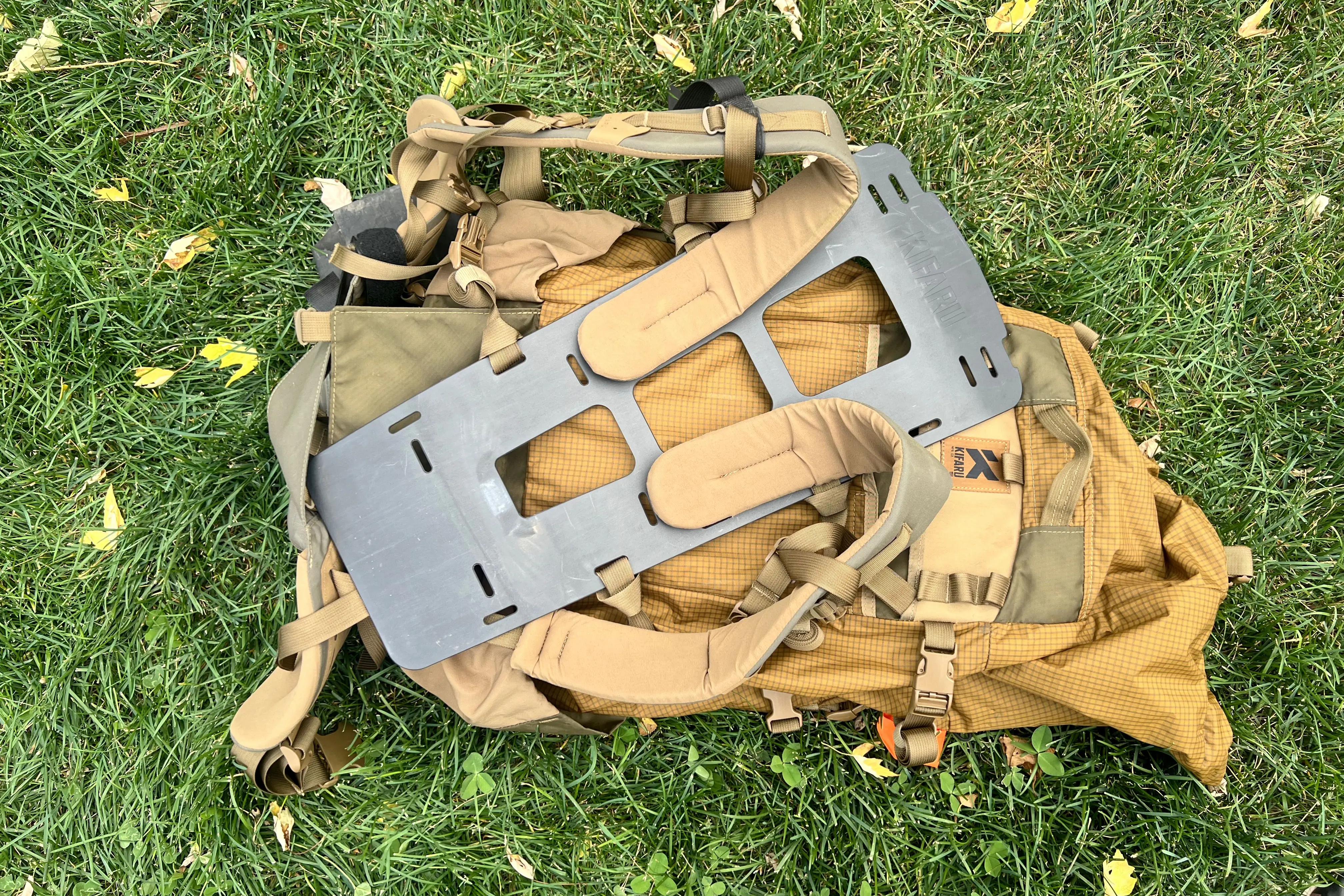
The entire pack relies on Kifaru’s new-for-2024 ARK Frame. This frame works with many of the brand’s packs. It can also haul heavy, awkward objects like elk quarters or firewood, either by using your fabric pack as a meat shelf or by adding a separate sling system.
Unfortunately, hunting was slow, and I didn’t get the chance to check that mode with an elk. I’ll update you when the opportunity arises!
Ladder locks on the carbon fiber stays make for easy size adjustments. Reconfiguring the pack in various ways or simply adjusting for size is simple.
But when success comes knocking, and you must haul meat, the pack shifts into meat-hauling mode. While I wasn’t successful this year, I did remove the pack from the frame and set it up for meat hauling.
It’s not exactly easy but it is very doable with a few minutes to puzzle over the system. Do this before you have an animal on the ground with any new pack, as it’s a lot easier on your lawn with no weather or terrain issues.
While adjusting and reconfiguring the frame is relatively easy, it is fiddly, too. Be prepared to remember how it fits together! One downside worth noting is that you need to carry a little bag of extra straps to attach the load lifters in hauling mode. Again, not a big deal, but something you should know before hitting the field.
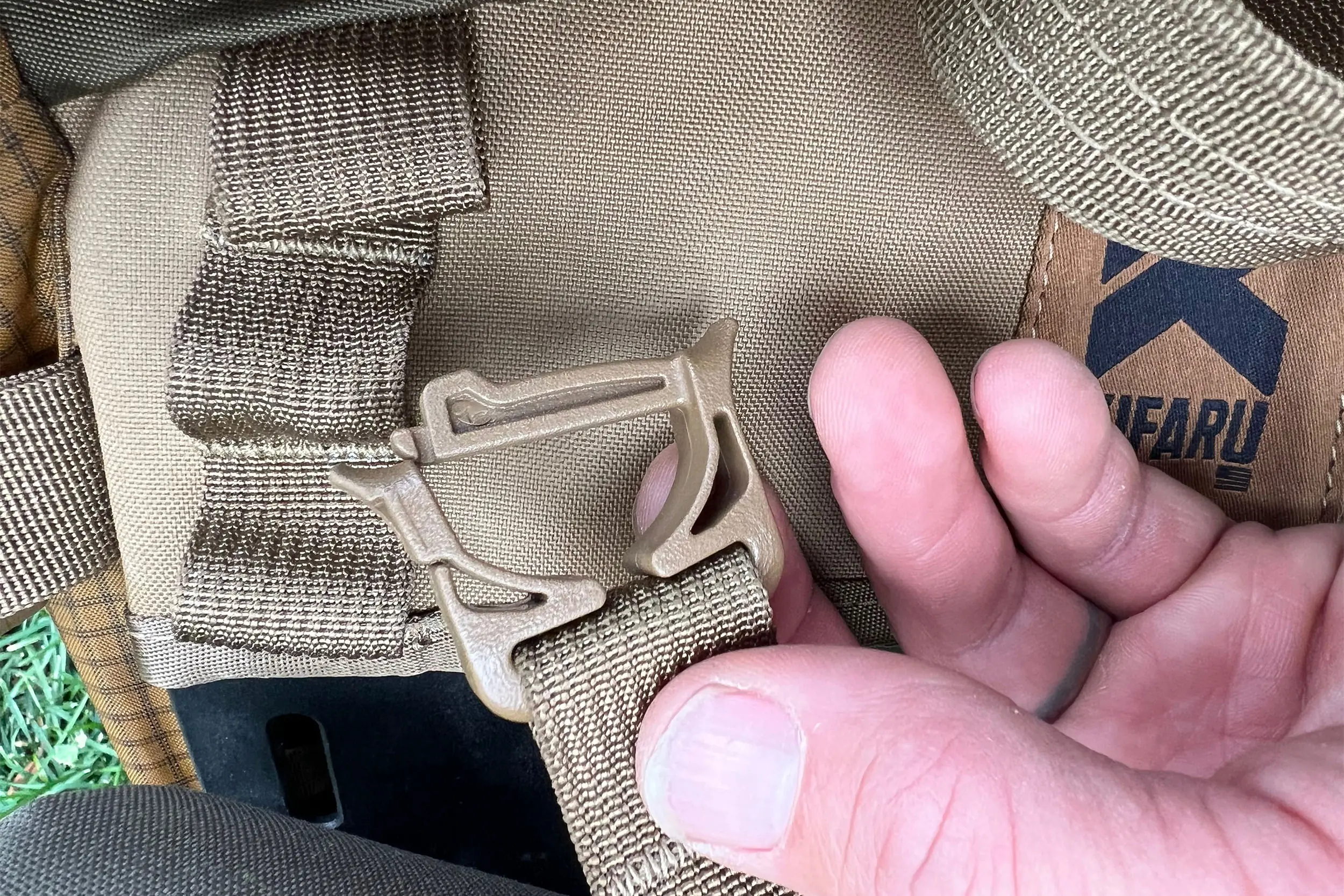



The ARK Frame has a backbone of carbon fiber. High-density nitrogen-enriched foams provide durable padding against the shoulders and hips. All these materials ooze quality.
The foams are soft enough for comfort but still maintain a lot of rigidity. This is an upgrade versus Kifaru’s older frames, and the brand claims they add longevity to the system. Time will tell, but so far, they seem great.
The frame weighs between 2.87 and 3.13 pounds, depending on size. Adding this to the weight of the Absaroka, you’ll land right around 6 pounds total, which is really reasonable for such a durable, capable backpack.
Kifaru Absaroka Review: Simple Yet Refined
Looking at the Absaroka, you’ll notice that there aren’t a lot of bells and whistles. While the brand does offer a lid as an add-on, it sells with a basic drawstring closure that also folds over like a roll-top.
It has a small internal bag inside the main compartment for important items like keys or a wallet. And other than that, it’s a simple three-compartment bag.
But simple is not bad. The bag, its connection with the frame, and the frame itself are highly refined. Engineers thought through everything from adjustability to compression straps and zippers and the angle of the hip-belt-to-shoulder strap connection.
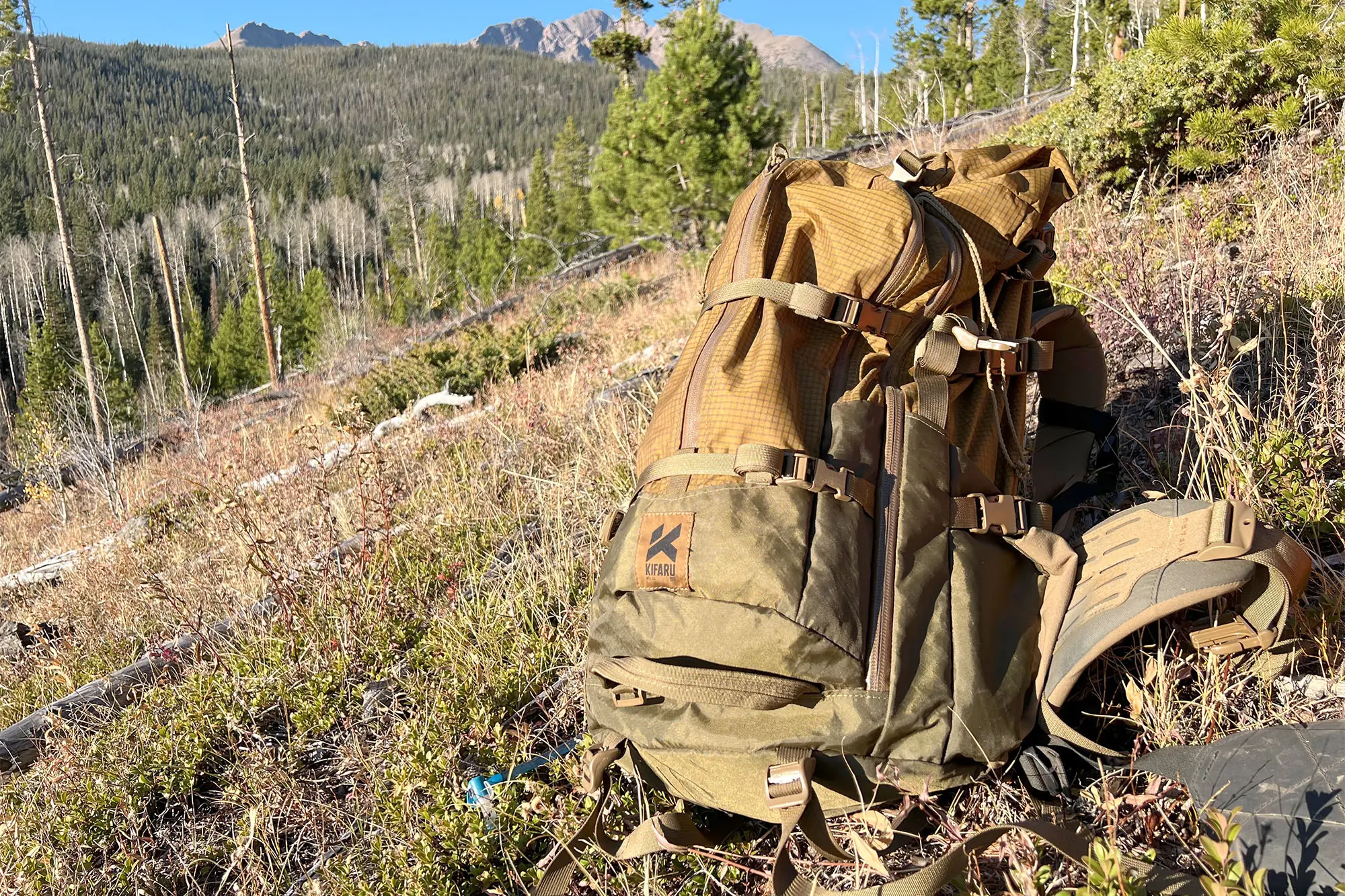



But I do have a couple of small criticisms. First, while the Absaroka does have an internal pocket and port for a water bladder, there is nowhere to attach the hose on the shoulder strap. It’s a minor issue, but if you use a water bladder like I do in hot weather, you’ll be looking for somewhere to clip it a lot. I’d recommend bringing a little bungee to attach it to your shoulder strap.
The other criticism is not on the pack but on the website. The instructions for the pack setup are somewhat limited to YouTube and mostly shot by third-party creators. The brand itself does not really break down the form and function in any descriptive way.
Every pack is different, and it takes a little time to figure out how to make adjustments and shift it from normal carry mode into meat-hauling mode. I’d love to see more information in an easy-to-find spot on Kifaru’s website.
Otherwise, this is a darned near-perfect backpack for those who need a very large bag but also want to use it as a day-hunting pack.
This is still an early review that I’ll update after more testing this season. But I’m a big fan and wouldn’t hesitate to recommend it. If you’re looking for a big, expedition-style pack to use for hunting or hauling big loads, the Kifaru Absaroka is one to investigate.
